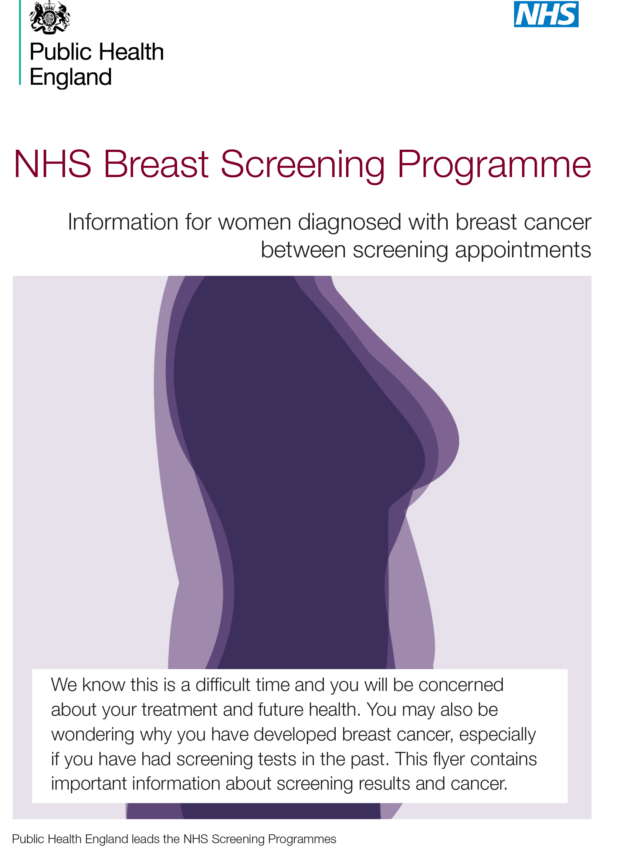It is inevitable that some breast cancers are found in the interval between routine scheduled breast screening appointments.
These are called interval cancers. There are 3 types of interval breast cancer.
- Most interval cancers are newly detected. They were not visible on mammography (breast x-rays) at the previous screen and developed since then.
- Some would have been visible at the previous screen but the signs of cancer were very subtle and thought to be normal.
- Occasionally, cancers are missed by the staff who ‘read’ the images.
National guidance

We have now published Breast screening: interval cancers and duty of candour toolkit. This national guidance provides advice to health professionals about how to communicate information on interval cancers to women who were previously screened in the programme.
The toolkit is designed for both screening and symptomatic breast services.
It includes useful information on:
- the process for the transfer of information required between symptomatic and screening services to allow radiological review of all interval cancers
- the radiology review process
- formal communications with women about disclosure of audit and duty of candour
- best practice when undertaking duty of candour communications
The toolkit includes an information flyer to give to women who have breast cancer diagnosed between screening appointments.
We are sending an initial supply of the flyers to all local breast screening services. These services should download and print copies locally as required after using up this initial supply.
The new guidance explains how and when services should use the flyer.
E-learning module
To support the duty of candour and disclosure of audit requirement we have developed a short e-Learning module.
The module includes:
- a useful video that highlights best practice when communicating the outcomes of radiological review to women
- links to the relevant guidance and toolkit
A certificate is available on successful completion of the module.
PHE Screening blog
PHE Screening BLOG articles provide up to date news from all NHS screening programmes. You can register to receive updates direct to your inbox, so there’s no need to keep checking for new blog articles.